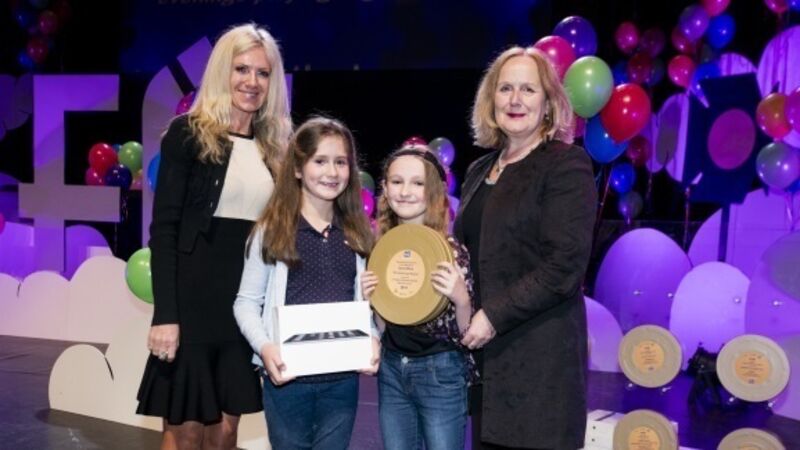How kids with autism from Cork stole the show to win an award for excellence in film-making

A GROUP of seven schoolchildren at the autism unit in Carrigaline Educate Together NS won an award for excellence in film-making earlier this month.
In its 11th year, the FÍS film project empowers teachers and children to explore the medium of film and digital media in the primary curriculum. FÍS develops active learning, creative thinking, language, imagination, collaborative learning and problem-solving. It also gives kids hands-on experience of using technology as part of the film-making process.
Altogether, 24 schools across Ireland won awards for film-making excellence, with the Carrigaline children — aged between nine and 13 — winning Outstanding Achievement In Special Effects.
“The children used a variety of apps on the iPad to create a few explosions and flood effects,” says Cormac Cahill, teacher at the autism unit.
The task was to devise a five-minute film and the Carrigaline group tackled stop motion animation, which saw them take 3,000 photos for the movie — all filming and editing were done on the iPad. Their film, The Great Lego Rescue, told about the Lego toys in their school coming alive at night. The main Lego character is kidnapped by a crew of 84 ducks created out of Lego by the children and the other toys launch a rescue campaign to get him back.
FÍS Film Festival organisers say the project has a very positive effect on children with special needs. Cormac Cahill agrees. “Children with autism sometimes like to work individually. It’s incredible to watch them all work together as a group on one project. There’s a lot of collaboration. They want to add to others’ ideas. There’s a lot of discussion about what will and won’t be included. They’re not afraid to lose certain elements [of plot] so as to work together to make a better story.”
He says the project helped the children to put across their story so that it would be understood by others beyond themselves. “The story might sound brilliant in their own head but another child wouldn’t understand it. Putting together a story for an audience is another skill — they had to make sure their story was understood.”
The project gave children an opportunity to work to their own individual strengths. “Some children are very comfortable with writing — they participated in the scrip-writing part. Others like the technical side —they did the filming and editing. And some are comfortable acting so they did the voices. Everybody gets to excel at something in a project like this,” says Cahill.
Primary schools wishing to get involved in FÍS Film Festival can get more information on www.fisfilmproject.ie.
Top Tips
How film-making helps children with autism spectrum disorder:
- Children are playing roles — fictional characters they created.
- They can use strengths such as ability to memorise lines or technical skills.
- As the film-making process focuses and builds on their strengths, they feel pride in their achievements.
- They’re less inhibited when acting, and discovering how to be with other children.











